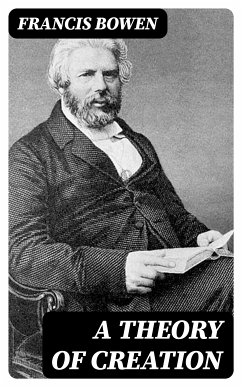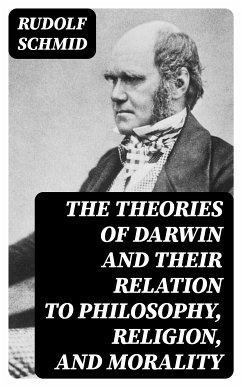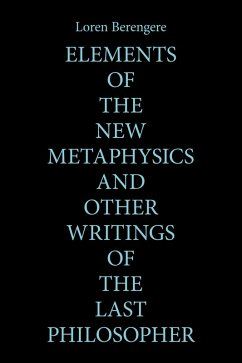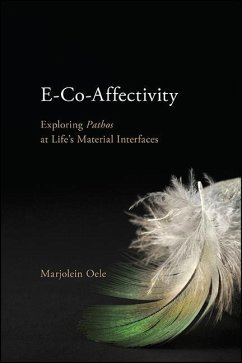
Elements of Physiophilosophy (eBook, ePUB)
Versandkostenfrei!
Sofort per Download lieferbar
1,99 €
inkl. MwSt.
Weitere Ausgaben:

PAYBACK Punkte
0 °P sammeln!
In "Elements of Physiophilosophy," Lorenz Oken presents a pioneering exploration of the relationship between biology and philosophical inquiry. Oken's literary style combines lyrical prose with rigorous scientific argumentation, reflecting the intellectual currents of early 19th-century Europe, when thinkers sought to reconcile the emerging natural sciences with philosophical traditions. His work intricately weaves concepts from morphology, embryology, and systematics, positioning biology as a key to unlocking the mysteries of existence and connecting the microcosm of individual organisms to t...
In "Elements of Physiophilosophy," Lorenz Oken presents a pioneering exploration of the relationship between biology and philosophical inquiry. Oken's literary style combines lyrical prose with rigorous scientific argumentation, reflecting the intellectual currents of early 19th-century Europe, when thinkers sought to reconcile the emerging natural sciences with philosophical traditions. His work intricately weaves concepts from morphology, embryology, and systematics, positioning biology as a key to unlocking the mysteries of existence and connecting the microcosm of individual organisms to the macrocosm of life itself. Oken, a German naturalist, philosopher, and one of the foremost figures in the field of Naturphilosophie, drew upon the works of Kant, Goethe, and Schelling, situating his own ideas within a broader philosophical discourse. His background in both medicine and natural history influenced his vision of a unified science, wherein philosophical thought and empirical observation coexist harmoniously. "Elements of Physiophilosophy" serves as a culmination of his life's work, challenging the boundaries of both science and philosophy. For scholars, students, and enthusiasts of both philosophy and science, Oken's "Elements of Physiophilosophy" is an essential read. Its ability to provoke thought and inspire a holistic understanding of life makes this book a cornerstone for those seeking to comprehend the intricate connections between biology, philosophy, and the natural world.
Dieser Download kann aus rechtlichen Gründen nur mit Rechnungsadresse in A, B, BG, CY, CZ, D, DK, EW, E, FIN, F, GR, H, IRL, I, LT, L, LR, M, NL, PL, P, R, S, SLO, SK ausgeliefert werden.





![Some We Love, Some We Hate, Some We Eat [Second Edition] (eBook, ePUB) Cover Some We Love, Some We Hate, Some We Eat [Second Edition] (eBook, ePUB)](https://bilder.buecher.de/produkte/61/61294/61294953n.jpg)







